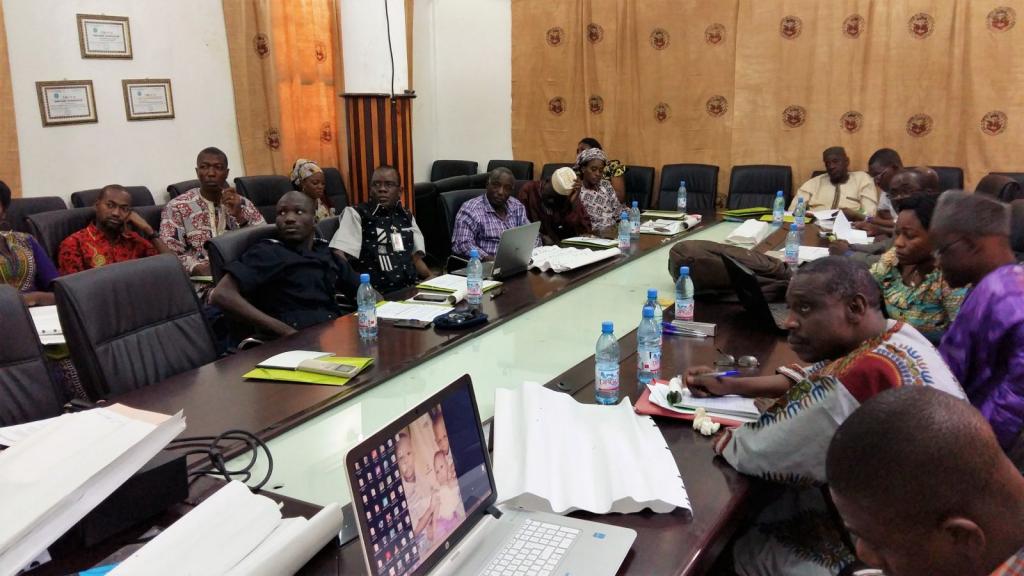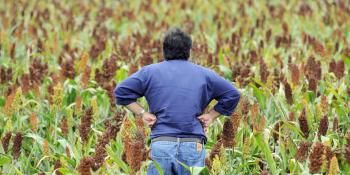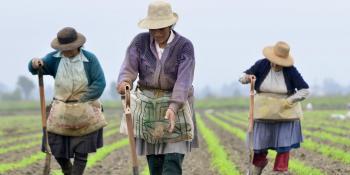Sowing the seeds of better adaptation

The lack of certified seed hinders adaptation options for Malian farmers, so district platforms are lobbying Malian MPs for more investment in agriculture.
Can an increase in the production of certified seed help Malian farmers adapt to climate variability and change? Members of district-level science-policy dialogue platforms think so.
Agriculture contributes about 70% of the gross domestic product to Mali’s economy. Smallholder farmers play a key role in the production of most food crops, but these days they are exposed to many challenges, including climate variability risks. Science policy platforms have been formed in three pilot districts, Bougouni, Koutiala, and Segou, to promote climate-smart technologies and enable conditions for effective science-policy interaction. The district platforms have an operational role and target frontline stakeholders such as farmers, district policy actors, extension officers, and the private sector. The platforms have focused on policy information sharing and joint consultations to promote multi-stakeholder collaboration towards the realisation of inclusive climate interventions.

Platform members with MPs at the National Parliament. Photo: E. Totin
The representatives of the platforms recently met with the members of the National Committee of Agriculture and Rural Development of the Parliament to inform the MPs about the platforms’ activities in Mali and draw their attention to strategies for effectively integrating climate change issues into national agricultural policies to improve the living conditions of the most climate vulnerable. Djeneba Marico, a platform member in Bougouni, explained:
At Bougouni, because of the illegal mining, people dig everywhere and with the intensity of this activity in our district, it became hard for us to find space for agriculture … and with the combination of the irregular rainfall, we are all using short and high yielding varieties. But the access to the seed is one of the major challenges we are exposed to in our community. It is just difficult!
At the Parliament, the platform members advocated for facilities to help access seed, which is a major barrier for smallholder farmers in Mali. The seed market remains severely underdeveloped—only small quantities of certified seeds are sold to farmers in local markets, while most farmers rely on one another as sources of seed. Often, farmers save part of their harvest, which is used as seed in the following season. They also exchange seed among themselves on an in-kind or cash basis.
Some farmer associations also produce quality seed of local and improved varieties, but they cannot afford the certification costs. When offered for sale, seed should be certified with an official label indicating the kind and variety of seed, the germination rate, and the date of testing. Any seed that is not properly labelled is not supposed to be sold. In Mali, on average, the certification of one ton of seed costs around 85000 CFA franc (approximately USD 146). Farmer cooperatives can hardly afford this cost, and because of the relatively high seed certification cost, more than 80% of the seed used is coming from the traditional and informal seed systems.
At the meeting with MPs, farmers’ leaders lobbied the Mali government to raise their budgetary allocations to agriculture and to support and provide subsidies for seed production, aimed mainly at the hurdle of certification, to fight against the perennial problem of food shortages in some parts of the country. Mamoudou Cisse, platform member, Bougouni, explained:
With the climate change conditions, rainfall patterns are more erratic. Usually I start with the land preparation in June, but these days the rains start later and end earlier than expected. Now, because the rainy season is short, we all shift to early maturing varieties. But, it is hard to have the seed locally. If the government can support the certification cost and facilitate access to seed production inputs, at least for the small farmers, we can produce high quality seed in our communities and sell the certified seed to our peers. Many of us are reluctant to produce the seed because we cannot afford the certification cost. I expect now that we draw the attention of our leaders on this challenge, they will take actions to help…
For MPs, it is a great opportunity to hear. According to He Idrissa Sankare, President of the National Committee of Agriculture and Rural Development:
Farmers are our parents and we are here to create conditions for them, so they can produce enough food for all of us! It is good that they raise this issue. From our side, we will voice the request to a higher level… and get to them.
Edmond Totin is the project manager for 'Capacitating science-policy exchange platforms to mainstream climate change into national agricultural and food security policy plans'. If you have questions related to the project, get in touch with Totin: e.totin@cgiar.org



